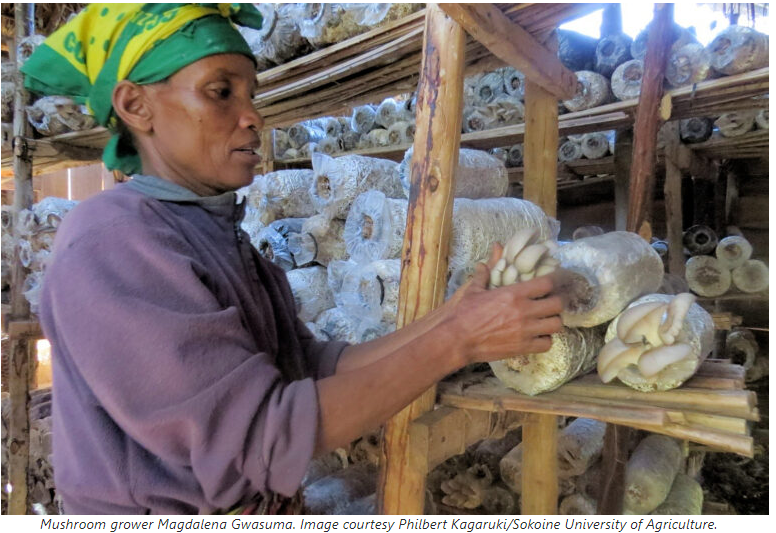KILOMBERO, Tanzania—Farmers living near the Kilombero Nature Forest Reserve in Tanzania’s eastern Morogoro region are growing mushrooms to earn additional income and protect forests. The mushrooms find a ready market with buyers in the capital, Dar es Salaam, 192 kilometers away.
Researchers from Tanzania’s Sokoine University of Agriculture say many locals illegally cut down trees in the reserve for timber and charcoal to sell. Valerian Silayo, a food processing and agro-forestry professor at Sokoine, says the mushroom-growing project he is managing can replace income from illegal tree-felling.“When farmers grow mushrooms, they can earn additional income and reduce their reliance to forest resources,” he said.
Silayo and his colleagues are supporting a group of 150 Kilombero mushroom growers with training on growing and processing mushrooms, as well as helping them access capital to expand their operations. Demand for oyster mushrooms both for export and for local restaurants has been steadily rising in Tanzania, providing a new and lucrative market for the farmers. Kilombero’s new fungi farmers can produce harvests throughout the year. A kilogram of mushrooms fetches around 7,000 Tanzanian shillings (approximately $3), in Dar, Silayo said.
He told Mongabay that farmers are slowly mastering unfamiliar techniques to maintain suitable growing conditions and maximise mushroom yields and quality. But, he said, farmers still lack vital infrastructure. “Mushrooms are highly perishable and require specific storage conditions to maintain freshness and extend shelf life, however many farmers lack proper storage facilities which result in spoilage.”

